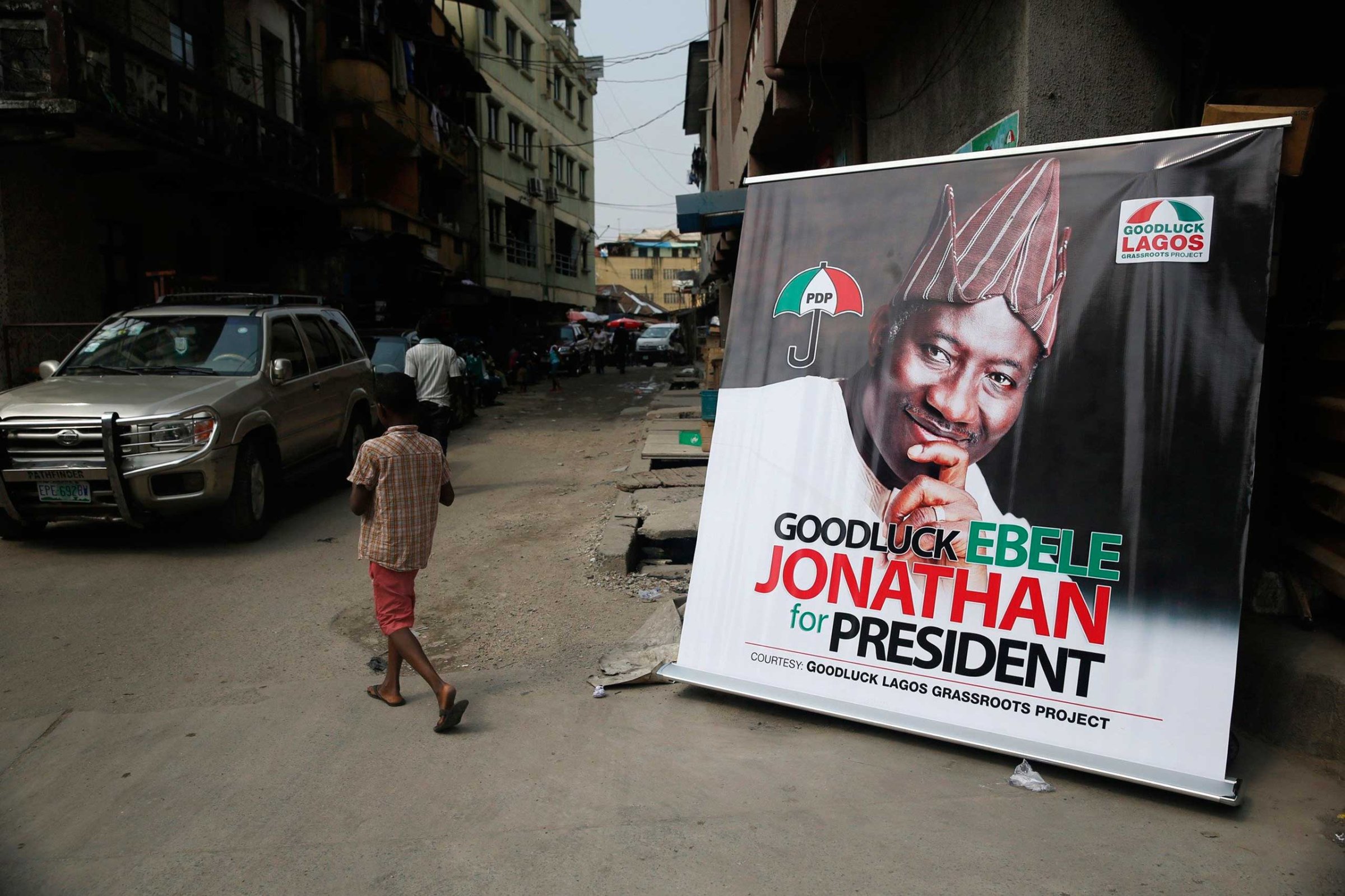
It’s never a good sign when your political mentor starts publically questioning your decisions as President, particularly if he is the man who laid the path to the presidency in the first place. For weeks Nigeria’s revered former President, Olusegun Obasanjo, had been quietly criticizing his former protégé and current President Goodluck Jonathan’s ability to combat the Boko Haram militant group. But when the Nigerian election commission announced a six-week postponement of elections to allow for a military operation against the insurgents, Obasanjo turned up the volume, publically insinuating that it was a ploy for the President to cement his position in the face of the rising popularity of his rival Muhammadu Buhari before endorsing Buhari in an interview with the Financial Times.
The elections come at a difficult time for Nigeria. Boko Haram has increased its attacks, and its terrain, over the past few months, expanding into neighboring Chad, Niger and Cameroon and raising fears for the stability of Africa’s biggest economy and most populous nation. Boko Haram has killed an estimated 13,000 Nigerians, and has abducted more than 1,000 others, including 257 schoolgirls in April. Despite a promised military operation, Nigeria’s ongoing political squabbling continues to prevent a unified national response. Boko Haram leader Abubakar Shekau has pledged to disrupt the polls, laying the groundwork for a fraught election season.
It was really only a matter of time before the divorce between Jonathan and Obasanjo became final. No one, however, expected it to be quite so theatrical. In front of a gathering of journalists and members of the ruling People’s Democratic Party, Obasanjo handed his membership card to a colleague to be torn up and announced his resignation from the party he helped found in 1999, when he became the country’s first post-dictatorship President. “Henceforth I will only be a Nigerian. I am ready to work with anybody regardless of his or her political affiliation,” he said in a statement that ran in national newspapers on Tuesday. That small act of petulance is likely to have far-reaching consequences for Jonathan’s campaign for re-election, already under strain from wide-ranging accusations of incompetence and weakness. While Obasanjo declared that he would not join the opposition, many will interpret it as an endorsement for the party of Buhari.
Shekau pledged to disrupt the elections “at any cost” also on Tuesday in a 15-minute video released via the group’s new Twitter account. “This election will not be held even if we are dead,” he vowed, speaking in the Hausa language of northern Nigeria. As if to prove his point, two suicide attacks killed at least 38 people on the same day the video was released. Two days before, on Feb. 15, a female suicide bomber killed at least 10 passersby in a market, also in the country’s northeast.
The number of Boko Haram attacks has increased dramatically since the announcement of the postponement of the elections, which were slated for Feb. 15. As a result, few Nigerians believe the leadership’s assurances that the insurgency will be defeated in time to allow residents of the northeast, where it is strongest, to vote. “Even if the ongoing military operations smash all the insurgents’ camps, as promised, Boko Haram has shown itself to be highly mobile, tactically adaptable and considerably resilient,” says Nnamdi Obasi, Nigeria researcher for the International Crisis Group. “So it is doubtful that the government will achieve an environment sufficiently secure for displaced persons to return home and for the electoral agency to conduct polls all over the northeast on March 28.”
The governments of Chad, Niger and Cameroon have promised to lend a hand by sending troops, but they are finding themselves bogged down with combatting Boko Haram on home turf. Shekau, in previous videos, pledged to attack any country that went after Boko Haram. He has followed through, threatening leaders by name in his video broadcasts, and sending forces and suicide bombers across the borders of all three countries. Cameroon’s army announced on Feb. 17 that it had killed 86 Boko Haram fighters and detained a further 1,000 suspected supporters. On the same day, Niger’s government claimed to have killed 200 rebels, detained 160 supporters, and averted a suicide bomb attack in the town of Diffa. Such assertions are difficult to corroborate. If true, they are an alarming indication of Boko Haram’s reach and strength. Obasanjo may have criticized Jonathan’s inability to manage Boko Haram, but if the combined forces of Nigeria, Niger, Chad and Cameroon can’t defeat the insurgency with international support, then his successor may also find it difficult.
More Must-Reads from TIME
- Why Biden Dropped Out
- Ukraine’s Plan to Survive Trump
- The Rise of a New Kind of Parenting Guru
- The Chaos and Commotion of the RNC in Photos
- Why We All Have a Stake in Twisters’ Success
- 8 Eating Habits That Actually Improve Your Sleep
- Welcome to the Noah Lyles Olympics
- Get Our Paris Olympics Newsletter in Your Inbox
Contact us at letters@time.com